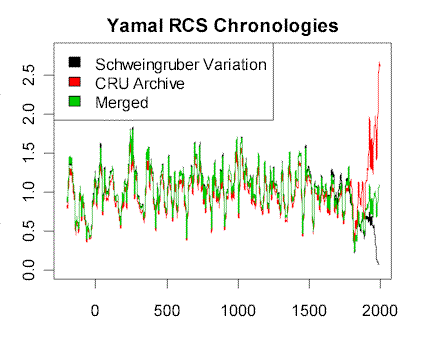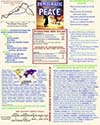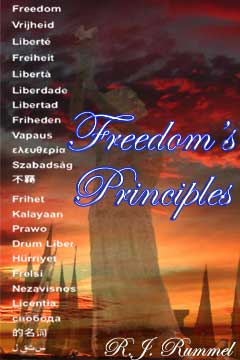March 30, 1916 Sambayat, Turkey

The sky was azure blue and dotted with fluffy, white clouds. Beneath it, a convoy of young women and children shuffled into the town and down the main road. All bore the look of death. Some stumbled, some were helped along; some, the youngest ones, nearly skeletons, were carried in the bony arms of their mothers. Some wore ragged clothes. Some none. All were filthy. All stared down at their bare feet with cavernous eyes and sunken cheeks.
Those who were naked were helped by a gentle, surprisingly warm breeze blowing up from the desert to the south. Combined with the bright sun, it overcame the normal spring chill and made for a comfortable coatless day. The air was clear, and the breeze wafted along the smell of cooking food from nearby buildings.
It would have been a great day to be alive. Uniformed, bearded guards, carrying their long rifles with bayonets fixed, ambled along beside the convoy. The women could no longer be hurried.
An officer at the head of the convoy lifted his head at the smell of food, then turned and raised his hands for the guards to stop the convoy. He waved to the side of the road. The guards pushed and prodded the women to a grassy area, and two of them were ordered to watch over the women. The rest formed a circle in the shade of a sweet gum tree, opened their packs, and began to eat lunch. No food was given the women, but they were allowed to dip their hands in a nearby puddle and drink from them.
One woman limped off the road and stood stock still for minutes, holding her two shriveled little girls by the hand. Then she slowly fell to her knees and toppled over, dead. Her girls sat down at her side, obviously believing she was only asleep, and again clasped her bony, cooling hands in theirs.
Another woman gave no attention to the water. She held the half-putrefied cadaver of a newborn infant tightly to her chest, cooing softly to it.
Nearby, a naked woman lay on her back, her head turned away from the sun. Her haggard face still retained some of what must have been ravishing beauty. Her body bore the bruises and slime of frequent rape. As the light in her eyes gradually extinguished, they momentarily reflected her agony before turning vacant.
After a half-hour, the officer stood and signaled for the guards to reform the convoy. Reluctantly, some at the point of a bayonet, the women and children struggled to their feet and tottered back to the road. One woman took the hands of the two children whose mother had died, and pulled them struggling away from her. The guards checked those that remained on the ground for signs of life, poking some with their bayonets. Finally, the trudging mass of despair was taken out of town on an intersecting road, heading toward the south and the desert. The guards left the corpses for the townspeople to bury.
Two nargile smokers in the rear of the Ligor Kiraathanesi coffee house along that road, each sitting comfortably next to his traditional pipe, had watched the convoy come and go. They knew exactly what was going on. Not so the young man seated at a tiny table on the patio of the coffee house. Shielded from the sun by a large Syrian juniper, Peter Kahan watched, mouth agape, only moving when the discomfort of the hard wooden chair on which he was sitting demanded it. He had traveled to several towns and was now in Sambayat on his way to the ancient city of Adiyaman. He had just had lunch and, of course, Turkish coffee, and still held the small coffee cup as though it was frozen in his hand.
He was a foreign correspondent for
The Times of London, which had sent him to Turkey because he spoke Turkish. He had learned it at home from his parents, who had immigrated to Britain before he was born. As always, The Times did not trust Foreign Ministry handouts. He was to interview members of the Young Turk government regarding Turkey’s two-front war with Italy over Libya, and with Bulgaria, Serbia, and Montenegro. The Times also wanted him to appraise Turkish public opinion, and that was why he was traveling through this region. Peter had heard rumors about what he had just seen. Some Greeks swore to him that it was happening and that he must inform the world through his newspaper, but the government officials he queried about it denied it flatly. Oh, there were some deportations of Armenians from the east, they said. But they were only to relocate those sympathetic to Russia from the eastern border regions in case Russia joined the war against them. They insisted that the deportations were humanely done.
But now he had seen a deportation with his own eyes. He looked again at the two scrawny corpses, and the doner kebab—thick grilled bread stuffed with lamb shavings and cabbage, topped with a spicy sauce—he’d had for lunch weighed heavily in his stomach. It was beginning to revolt; he could taste the spicy sauce again. He quickly put the cup down and doubled over, spewing his lunch on a nearby bush.
Forty-three Miles Away
One after another, the muscular, heavily-built man hacked at their heads and necks with his axe. When they tried to shield themselves, he hacked off their arms first. His comrades, armed with their bayonets and knives, worked into the quaking, screaming crowd of women, children, and old men. He and the other soldiers were under orders to save ammunition.
Then he saw her. She stood silently, hugging her younger brother to her, her head resting on his. She was from his town of Okaris, and very beautiful. She was not one whose name he would forget, and he yelled to her above the tumult, “Quick, Siran. Come to me.”
She did not hear him.
He pushed several women aside, kicked over one who was praying on her knees, and came up alongside Siran. He put one bloody hand on her shoulder, and when she looked at him, he yelled above the terrible noise, “I will protect and save you. Release your brother, and follow me.”
She shook her head.
He grabbed her arm and tried to pull her away from her brother, but she held him tighter. The hacking, stabbing soldiers were getting closer.
“I give you life,” he urged.
Again she shook her head. She turned her head to look into his eyes, and finally shouted, “If you are so kind, I ask only this favor.”
“What? Quick!” he barked.
“I know you will not save my brother. Please. Kill him now. Please, before me. Then while I wait for you to kill me, I will not worry about him. I do not want him to suffer any agony, any torture.”
The muscular soldier vigorously shook his head, and again tried to pull her away. She resisted.
“Please,” she said.
It was too late anyway. He could feel his comrades at his back, and one was approaching from the side with his bayonet pointed toward her. He nodded.
Siran quickly turned her brother to face her, and whispered into his ear, “A temporary goodbye, my brother.” She kissed him. “We will meet in the next world and be in God’s hands. Do not fear. It is a matter of seconds.”
They kissed each other for the last time, and the boy stood apart, facing him without fear. The soldier now had no choice. Orders were orders. He quickly cleaved the boy’s skull open with the axe, and he collapsed at sister’s feet, dead. He turned to the girl. She stood with her hands at her sides. Her chin was uplifted toward him, and her eyes were misty. “Thank you,” she said, barely loud enough to hear. “Please, now, do the same to me. One blow. No torture.”
He nodded, heaved back his axe, then hesitated, looking into her eyes. He saw only acceptance. He brought the axe down on her head.

Link of Note
Quote:
The infamy of executing this century's first full scale ethnic cleansing belongs to Turkey's Young Turk government during World War I. In their highest councils Turkish leaders decided to exterminate every Armenian in the country, whether a front-line soldier or pregnant woman, famous professor or high bishop, important businessman or ardent patriot. All 2,000,000 of them.


Books, articles, statistics


































